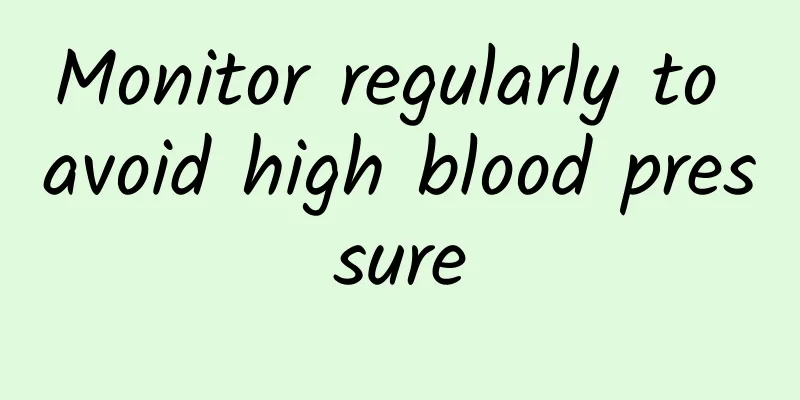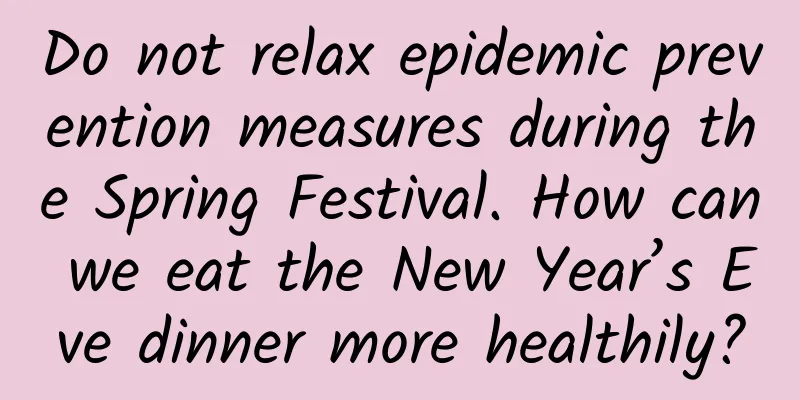Monitor regularly to avoid high blood pressure

|
Hypertension is a familiar word in our lives. According to the first comprehensive analysis report on global hypertension trends released by The Lancet in 2021, the number of hypertensive patients aged 30-79 in the world has increased from 650 million to 1.28 billion in the past 30 years. An estimated 1.28 billion adults aged 30-79 suffer from hypertension worldwide, most of whom (two-thirds) live in low- and middle-income countries. According to data from my country in 2018, the prevalence of hypertension in people aged 18 and above is approximately 27.9%. Based on this, it is estimated that about one in every four adults is a hypertensive patient, and the total number of people with hypertension is 244 million. Blood pressure varies throughout the day depending on different factors, including body posture, physical activity, mood, and sleep. For adults, if the systolic blood pressure is ≥140 mmHg and/or the diastolic blood pressure is ≥90 mmHg on two different days, hypertension can be diagnosed. Symptoms of high blood pressure Hypertension is also known as the "invisible killer". Most people with hypertension have no symptoms, so they are not aware that they have this problem. Some people with hypertension may experience morning headaches, nosebleeds, palpitations, vision changes and tinnitus. Severe hypertension can cause nausea, vomiting, confusion, anxiety, chest pain and muscle tremors. The survey found that 41% of female and 51% of male hypertensive patients are unaware of their condition, and more than half of the patients do not receive treatment. About 580 million people with hypertension have not been diagnosed and they do not know that they have hypertension. Classification of hypertension Hypertension can be divided into two categories based on its cause, primary hypertension and secondary hypertension. Most adults have hypertension that has no clear cause, called primary (essential) hypertension, which often develops gradually over many years. Some people have hypertension that is caused by an underlying disease, called secondary hypertension, which often causes a sudden increase in blood pressure. Risk factors for hypertension Race, a diet high in sodium and low in potassium, obesity, a sedentary lifestyle, smoking, excessive alcohol consumption, lack of exercise, lack of sleep, stress, a family history of high blood pressure, and aging can all contribute to high blood pressure. Pregnancy can also cause high blood pressure. Although high blood pressure is common in adults, it can also occur in children. Some children have high blood pressure due to kidney or heart problems. However, unhealthy diets, obesity, and lack of exercise are causing more and more children to suffer from high blood pressure. What complications may occur if high blood pressure is not controlled? Prolonged high blood pressure acts on the walls of the arteries, damaging blood vessels and organs. The higher the blood pressure and the longer it remains uncontrolled, the greater the damage. Uncontrolled high blood pressure can lead to complications such as heart attack or stroke, aneurysm, heart failure, weakened and narrowed blood vessels in the kidneys, thickened, narrowed or ruptured blood vessels in the eyes, metabolic syndrome, memory or comprehension problems, and dementia. Prevention methods Diet: Reduce salt intake (less than 5 grams per day), eat more fruits and vegetables, and limit the intake of high saturated fat and trans fat. Exercise regularly and control your weight. Quit smoking and drinking. Make reasonable adjustments and release stress. For people who already suffer from hypertension, regular blood pressure monitoring is very important. They can measure their blood pressure by themselves or go to a community hospital for regular blood pressure measurements. At the same time, they should actively cooperate with the doctor's treatment and take long-term medication as prescribed by the doctor. They should reduce their mental stress and learn to relax. Hypertension is easy to diagnose, but it is often ignored because it has "no symptoms", which leads to delayed medical treatment and diagnosis. Therefore, it is important for everyone to monitor blood pressure regularly. |
<<: Correct bad posture and teach you some "elastic band" training methods
>>: Stop eating it while it's hot! It may harm you...
Recommend
Benefits of eating red bean soup for pregnant women
For women, some red ingredients are actually indi...
What should you pay attention to after painless abortion?
With the continuous introduction of Western cultu...
What causes bleeding after sex?
Vaginal bleeding is a very serious gynecological ...
What are the effects of a mother's bad temper on her children?
For mothers, you must learn to control your tempe...
What is the structure of the breast?
Nowadays, many women pay special attention to bre...
What menstrual problems will women encounter in their lifetime?
What age is normal for menarche? Q: I am 18 years...
3 months after giving birth, lower abdomen pain like menstruation
Three months after giving birth, women usually re...
Female internal organs structure picture
From a medical point of view, men and women consu...
How to regulate a woman's acidic constitution
Maybe many of us don’t have a clear understanding...
How to fry fresh Jerusalem artichokes? Can Jerusalem artichokes be stewed in soup?
Jerusalem artichoke is a common food and contains...
Why do women have excessive menstrual bleeding?
Many female friends often say that they find that...
What are neck exercises?
Nowadays, many people have some problems with the...
Early female anal fistula picture
Anal fistula is a very common anorectal disease. ...









